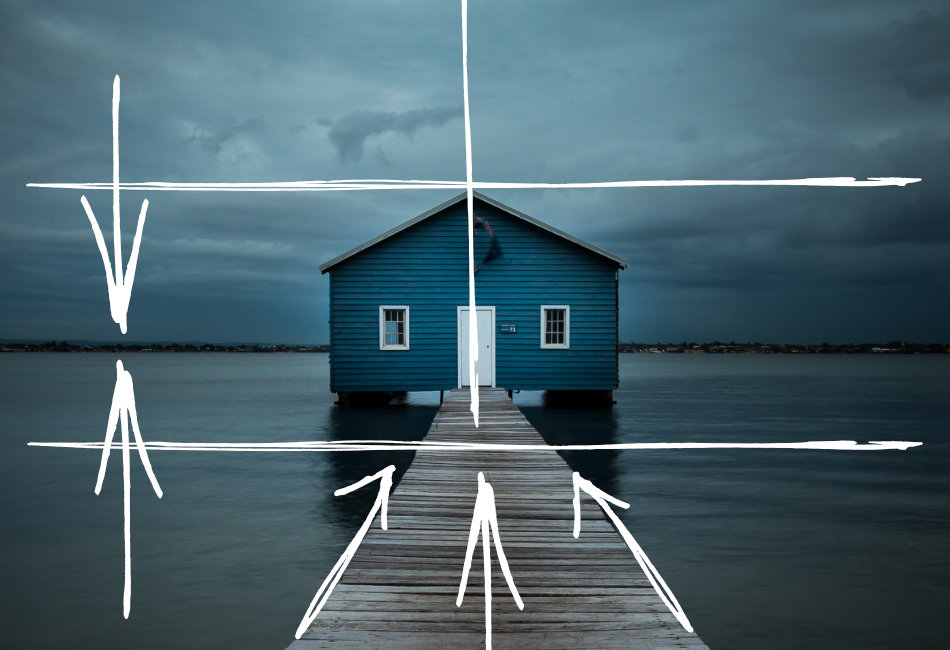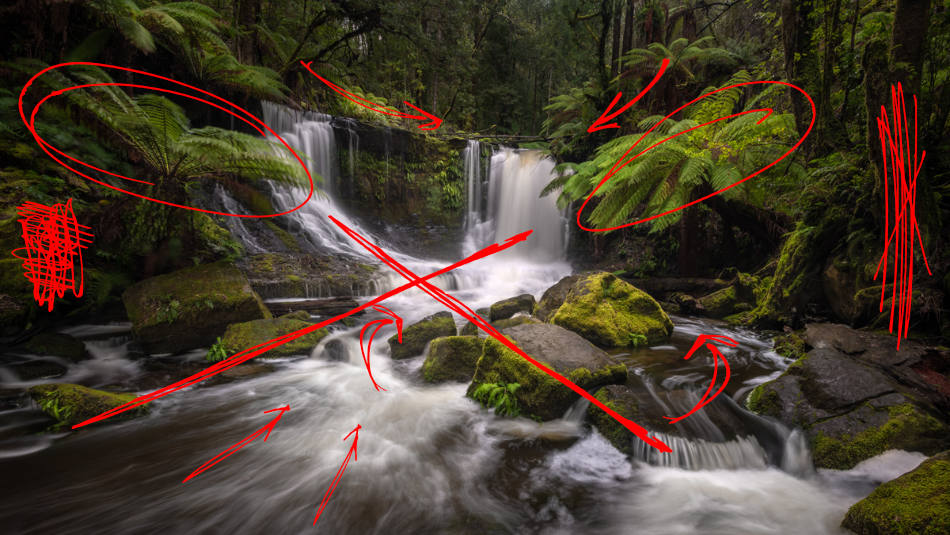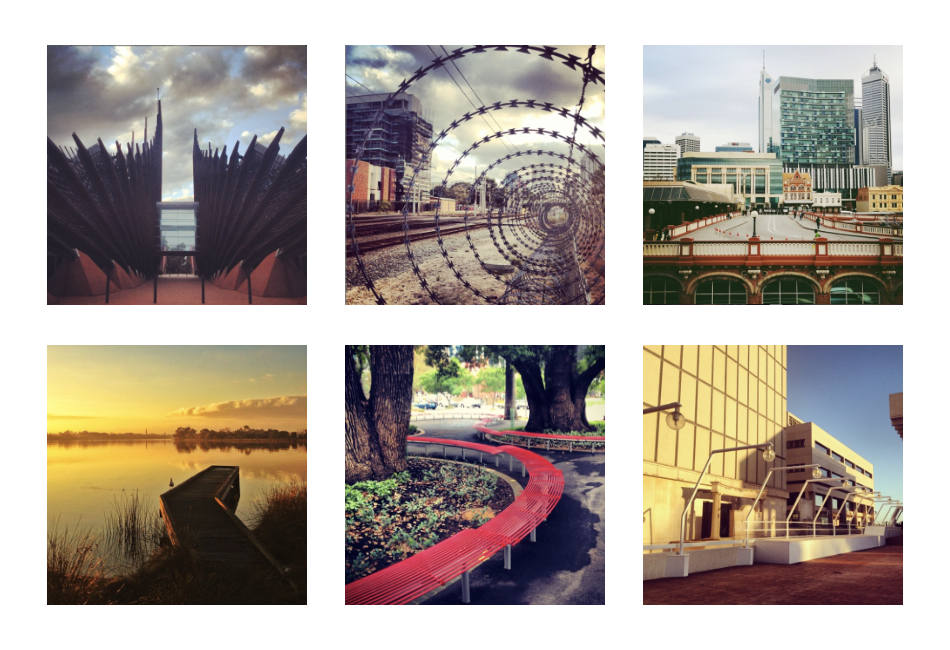One of the more challenging landscape photography skills to master is finding compelling compositions.
When I’m running photography workshops or visiting camera clubs, I see people who are getting into landscape photography struggling to work out how to find a composition of a landscape scene.
The key is to work out how you can improve your compositional skills for landscape photos.
Understand how composition can impact a photo and build a bank of composition techniques to apply to your landscape images in different locations. Also, spend time examining how other photographers have used composition in your favorite photos and find opportunities to practice creating compositions as often as possible.
The good news is the skills and knowledge to be great at composition can be learned.
Your compositions will naturally improve through experience, getting out on location, and shooting more landscape photography.
However, there are some things you can do to help speed up your mastery of composition.
How to Develop Your Composition Skills in Landscape Photography?
So here are 5 actionable strategies you can put in place to improve your compositions and take better landscape pictures.
1. Understand how Composition can Improve a Landscape Photo
It’s essential you know how each composition technique impacts your landscape pictures and understand what types of scenes you can improve by applying a particular composition.
We’ll cover composition tips and techniques in detail in the following point, but before we do, let’s discuss how the composition can improve the picture we take.
What is Composition?
Composition is the arrangement of elements in a scene within the frame to create a picture that is pleasing to the eye and allows the viewer to make sense of what they see.
There are essentially two parts of your landscape photo you can improve through your composition.
When you decide on a composition, you choose what you include within the frame and what parts to omit. Often you’re looking to simplify a scene and remove distraction. In addition, you want to guide the viewer’s eye through the photo.

The second part is to enhance the story of the landscape you’re capturing. The composition impacts the narrative by relating objects in the scene. Furthermore, if an aspect of the story portrays some drama or feeling in the scene, the composition can emphasize emotion.
TAKE ACTION
Learn more about how the composition will enhance your landscape images.
2. Learn about Composition Tips and Techniques
The internet is full of composition techniques, sometimes referred to as composition tips. These tips are general arrangements of elements within an image that help make the photo pleasing to view.
Techniques are a great starting point as you start to build your knowledge of composition. Developing a bank of composition ideas provides you with options to try when you’re out on location, trying to frame up a challenging scene for a landscape image.
TAKE ACTION
Here is a brief explanation of some of the more popular composition techniques that are handy to know.
| Identify the main subject | The rest of the composition should support. |
| Add to the story | Find other elements that support the story. |
| Fill the frame | Try filling the frame with what’s interesting in the scene. |
| Leading Lines | The eye naturally follows straight and curved lines |
| Foreground | Show detail and draw the viewer into the image |
| Layers | Provides depth to the photo, drawing the eye through. |
| Rule of Thirds | Objects positioned on the thirds are generally more pleasing to the eye. |
| Balance | An image where the elements or interactions are not balanced can feel awkward. |
| Check your Edges | Objects squeezed against or cut off by the edges of the image can be distracting. |
| Negative Space | Use negative space to emphasize a subject or feeling within the image. |
| Symmetry | Try to place a single subject that is symmetric in the center of your picture. |
| Framing | Framing can draw the eye to a subject or provide context or emotion. |
The drawback of relying on these techniques alone is, they don’t necessarily work in every situation. In addition, you can’t blindly apply any composition method and expect a better image as a result.
We cover more about the impact of composition in point 1.
3. Creatively Experiment with Breaking the Rules
As I mentioned above, composition techniques and rules are a great general starting point, but they aren’t guaranteed to produce a great result. Some photographers place far too much emphasis on compositional rules that they miss the intention of composition.
General composition tips are only going to get us partway there and only in some landscape scenarios.
Once you know the rules or guides to composition, you should start trying to break these rules.
However, don’t break them for the sake of breaking them.
TAKE ACTION
– Experiment with your composition with intent. Keep in mind how you’re going to change the story within a photo by rearranging objects.
– Landscape photography is an artistic pursuit. The composition you create is part of the creative process. Therefore, you should encourage yourself to develop new and unique ways to view the scene you’re photographing.
– You won’t always come away with portfolios worthy photos. However, the learning you achieve through this approach and the knowledge you’ll gain around composition will help you grow as a photographer.
4. Analyze Great Examples of Effective Composition
One of the most effective teaching strategies for anyone developing new skills is the power of examples.
From my own experience as a teacher, someone can begin learning about a concept if explained to them. However, providing quality examples that illustrate the skill as it’s applied allows the learner to broaden their understanding of the idea.
Observing compelling compositions put into practice by other photographers can deepen your grasp of the technique, and you become more aware of its impact on the landscape photo.

TAKE ACTION
– You can fast-track your compositional skills by taking a few moments to examine a couple of your favorite landscape photos captured by other photographers. Instagram is an excellent resource for this.
– Notice the composition techniques other photographers utilized to arrange elements in the scene.
– Take note of where your eye first lands in the picture. What was it about that part of the image that grabbed your attention?
– Identify the story they’ve captured and think about how the composition has helped the photographer tell that story.
– Recognize the emotion captured by the photographer. How did the photo make you feel? Identify how the composition may have contributed to accentuating the mood.
5. Practice Creating Compositions in Ordinary Locations
It shouldn’t be news to you that you’ll get better at something if you practice.
However, out of all of the actionable points suggested here, this one will probably make the most significant improvement to your composition skills.
The Difference between Skill and Execution
You can have a skill explained by someone, and they can provide you with tips and techniques (point 2). You can understand the value of the skill (point 1) and even see some exceptional exemplars of the skill in action (point 4).
But it’s not until you have the opportunity to put the skill into practice in a variety of situations that you begin to develop that skills to the point where your execution is effective and achieves the desired results.
TAKE ACTION
Find Opportunities to Practice
– It would be too easy to suggest you need to get out and practice landscape photography. Although this would help, for many, it’s just not practical.
– If you want to improve specifically on your composition skills, you need to find a way to practice as often as you can.
– So look for opportunities to grab any camera, it doesn’t have to be your landscape camera, and practice shooting different scenes. Again, you don’t have to shoot landscapes for this task to be beneficial.
– For years as I commuted into my regular day job, I would get off the train each day, one or two stops from my destination, and walk the rest of the way, shooting ordinary urban scenes just with my iPhone.

The camera you use doesn’t matter. The image itself has no bearing on the outcome. Instead, this activity aims to find regular, consistent opportunities to hone your compositional skills.
If you cannot use your commute, integrate it with a walk at lunch or exercise with the dog.
This daily practice had other benefits, like exercise (we should all be doing a walk for 30 minutes), well-being, and a chance to capture images.
The places I was photographing weren’t in any way remarkable. The more mundane and ordinary, the better.
Look for a scene. Don’t worry about light or conditions. Instead, concentrate on composing the best photo you can with what you have in front of you.
As an extra motivation, I would upload an image most days on my Instagram account that you can still find today.
Can composition be learned?
Thousands of people have successfully learned composition in photography around the world. While some people have a natural aptitude for landscape composition, with some knowledge of a few composition techniques and regular practice, most people can develop practical composition skills in just a few months.
You may hear statements like, “they have a great eye…” or ” they are a natural photographer”.
While complements like this are nice to hear they give the feeling that a ‘good eye’ is some you are born with.
In my experience this is not true.
It’s a combination of understanding the impact of composition, knowledge of how compositional techniques work with in an image and regularly practicing composing scene that see you develop your skills.
QUICK RECAP
Become familiar with some of the composition techniques typically used in landscape photos and identify how composition can improve a landscape image. Look at examples of how other photographers have effectively composed shots.
Find opportunities to practice regularly, shoot in ordinary locations, and experiment creatively, understanding the impact of composition techniques.
You’ll be a Composition Master in no time!
